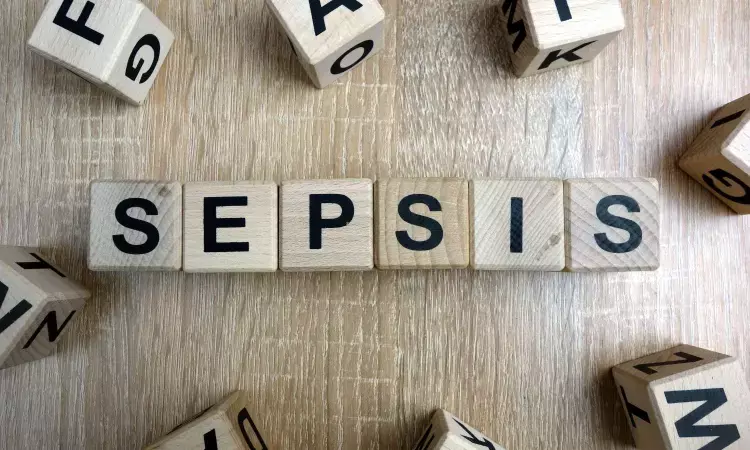- Home
- Medical news & Guidelines
- Anesthesiology
- Cardiology and CTVS
- Critical Care
- Dentistry
- Dermatology
- Diabetes and Endocrinology
- ENT
- Gastroenterology
- Medicine
- Nephrology
- Neurology
- Obstretics-Gynaecology
- Oncology
- Ophthalmology
- Orthopaedics
- Pediatrics-Neonatology
- Psychiatry
- Pulmonology
- Radiology
- Surgery
- Urology
- Laboratory Medicine
- Diet
- Nursing
- Paramedical
- Physiotherapy
- Health news
- Fact Check
- Bone Health Fact Check
- Brain Health Fact Check
- Cancer Related Fact Check
- Child Care Fact Check
- Dental and oral health fact check
- Diabetes and metabolic health fact check
- Diet and Nutrition Fact Check
- Eye and ENT Care Fact Check
- Fitness fact check
- Gut health fact check
- Heart health fact check
- Kidney health fact check
- Medical education fact check
- Men's health fact check
- Respiratory fact check
- Skin and hair care fact check
- Vaccine and Immunization fact check
- Women's health fact check
- AYUSH
- State News
- Andaman and Nicobar Islands
- Andhra Pradesh
- Arunachal Pradesh
- Assam
- Bihar
- Chandigarh
- Chattisgarh
- Dadra and Nagar Haveli
- Daman and Diu
- Delhi
- Goa
- Gujarat
- Haryana
- Himachal Pradesh
- Jammu & Kashmir
- Jharkhand
- Karnataka
- Kerala
- Ladakh
- Lakshadweep
- Madhya Pradesh
- Maharashtra
- Manipur
- Meghalaya
- Mizoram
- Nagaland
- Odisha
- Puducherry
- Punjab
- Rajasthan
- Sikkim
- Tamil Nadu
- Telangana
- Tripura
- Uttar Pradesh
- Uttrakhand
- West Bengal
- Medical Education
- Industry
Study Explores UCP2 as Diagnostic Biomarker for Sepsis

Sepsis is a leading cause of illness and death in the ICU. Many biomarkers have been studied to diagnose and predict the outcome of sepsis and assess the response to treatment, but their effectiveness is still being discussed. Procalcitonin (PCT) remains a dependable biomarker for sepsis. PCT is produced by thyroid cells and other cells, including immune cells, during the proinflammatory phase of sepsis, and its levels rise rapidly after the start of the innate immune response. Recent study explored the potential role of mitochondrial uncoupling protein 2 (UCP2) as a biomarker for diagnosing sepsis and septic shock. The researchers conducted a prospective observational study on 128 subjects, with 78 patients categorized into an infection, sepsis, or septic shock group based on their quick sequential organ failure assessment (qSOFA) score and procalcitonin (PCT) levels.
In the study findings were :
1. UCP2 levels were significantly higher in the sepsis and septic shock groups compared to the control group (p<0.001). This suggests that UCP2 could be a potential diagnostic biomarker for sepsis.
2. UCP2 levels correlated with PCT levels at various time points (admission, day 3, and day 7), indicating a relationship between UCP2 and this established sepsis biomarker.
3. The researchers found that a UCP2 level of more than 88.4 ng/ml suggested sepsis or septic shock, with a sensitivity of 73% and specificity of 33.3%.
4. While UCP2 levels were higher in the septic shock group compared to the sepsis group, the difference was not statistically significant.
5. UCP2 levels correlated with the Sequential Organ Failure Assessment (SOFA) score on admission and day 3, but only had a significant correlation with PCT on day 7.
Conclusion
The researchers conclude that UCP2 shows promise as a potential biomarker for diagnosing sepsis, as its levels were significantly elevated in sepsis and septic shock patients compared to controls. However, its diagnostic accuracy was not superior to the established biomarker PCT. Further research on larger sample sizes is needed to better elucidate the role of UCP2 in sepsis diagnosis and prognosis.
Key Points
Here are the 6 key points from the research paper summary:
1. The study explored the potential role of mitochondrial uncoupling protein 2 (UCP2) as a biomarker for diagnosing sepsis and septic shock.
2. UCP2 levels were significantly higher in the sepsis and septic shock groups compared to the control group, suggesting UCP2 could be a potential diagnostic biomarker for sepsis.
3. UCP2 levels correlated with procalcitonin (PCT) levels at various time points, indicating a relationship between UCP2 and this established sepsis biomarker.
4. The researchers found that a UCP2 level of more than 88.4 ng/ml suggested sepsis or septic shock, with a sensitivity of 73% and specificity of 33.3%.
5. UCP2 levels correlated with the Sequential Organ Failure Assessment (SOFA) score on admission and day 3, but only had a significant correlation with PCT on day 7.
6. The researchers conclude that UCP2 shows promise as a potential biomarker for diagnosing sepsis, but its diagnostic accuracy was not superior to the established biomarker PCT, and further research on larger sample sizes is needed.
Reference –
Sachidananda R, Bhat VK, Kurjogi M, Vanti GN, Kayara M. Potential role of mitochondriauncoupling protein 2 as a biomarker in patients with sepsis and septic shock: A prospective observational study. Indian J Anaesth 2024;68:718‑24
MBBS, MD (Anaesthesiology), FNB (Cardiac Anaesthesiology)
Dr Monish Raut is a practicing Cardiac Anesthesiologist. He completed his MBBS at Government Medical College, Nagpur, and pursued his MD in Anesthesiology at BJ Medical College, Pune. Further specializing in Cardiac Anesthesiology, Dr Raut earned his FNB in Cardiac Anesthesiology from Sir Ganga Ram Hospital, Delhi.


